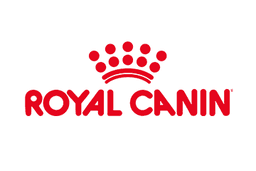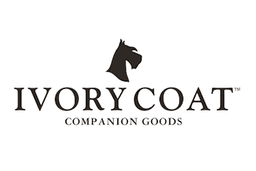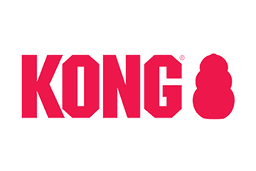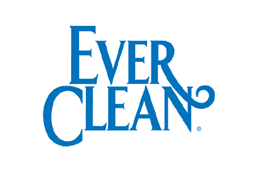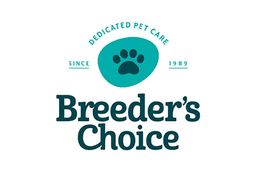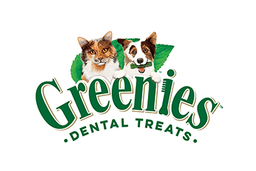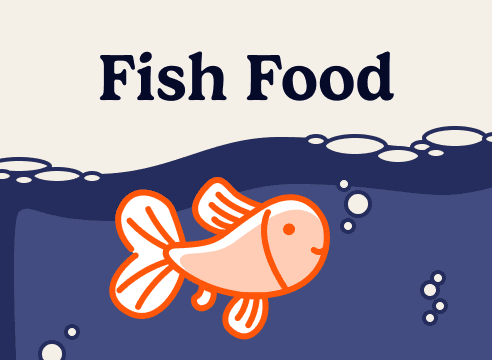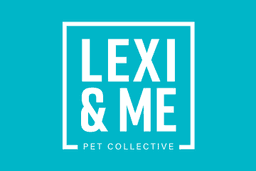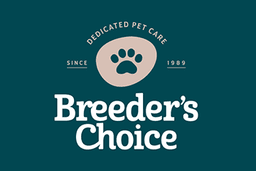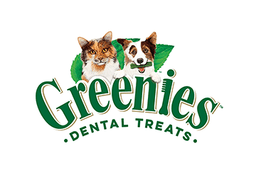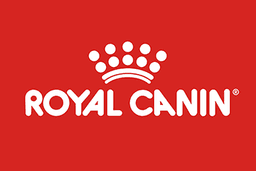Puppies are fast-growing bundles of playful energy, which means they have different nutritional needs to older dogs.
Here's what you need to know about puppy nutritional needs for optimum energy and development.
What Does Normal Puppy Growth and Development Look Like?
As adorable as they are whilst tiny, puppies generally don’t stay this size for long. By the time your puppy is six months old, they will have gone through their fast-growing juvenile stage, which happens between three to six months.
At six months, your puppy is now an adolescent. Physical growth starts to slow as energy levels increase and your puppy’s personality comes to the fore. All adult teeth should be formed at this stage, and your puppy should hopefully have the hang of house training to the relief of all pup owners! This is also the point where your pup reaches sexual maturity, so you may want to consider getting them spayed or neutered. The change often occurs a little later, typically between 9 to 15 months for large breed dogs.
How Growth Development Looks Different for Every Breed
No breed of dog is the same as another, meaning that puppy development stages can look pretty different depending on the adult size of your furry friend.
Suppose you are the proud new owner of a Pomeranian, for example. In this case, chances are your pup will have completed its growth around the six-month mark. Having said that, some Poms continue to grow until their first birthday. There really is no right or wrong way when it comes to puppy development!
On the other hand, perhaps you fell in love and opted to become a pet parent to a large breed dog, such as the giant and cuddly Newfoundland. In this scenario, your puppy typically won’t finish growing until the two-year mark. As they grow into their frame, many large breed puppies may look somewhat awkward and lanky between six to eight months. This is nothing to worry about; it’s a normal and adorable stage of their development.
What Are Nutrients?
Nutrients are chemical compounds found in food necessary for the body to perform its basic functions. Dogs of all ages need nutrients to survive. However, getting the right balance of nutrition is extra important for your growing puppy.
Why Are Nutrients Important in a Puppy’s Diet?
Nutrients directly impact the immune system and composition of the body, meaning that your puppy won’t achieve optimal growth and development without a healthy diet. What’s more, puppies cannot regulate nutrients and vitamins the same way as adult dogs.
What Are the Nutritional Requirements For Growing Puppies?
You may be asking yourself, what nutrients does my puppy need? When selecting foods for your puppy, it’s key to understand that certain nutrients and vitamins are required for a balanced diet. We offer a wide range of top brand dog food, so you can choose the best product to cater to your growing puppy’s needs. If your pup has additional health demands, skin, or food sensitivities, we also provide high-quality vet products tailored to your fur baby’s condition. Without further ado, let’s cover the most important nutrients for puppies.
Fat
Puppies need fat in their diet to fuel their high-energy lifestyle and build up muscle. A source of essential fatty acids, which the body is unable to produce alone, this nutrient also carries fat-soluble vitamins A, D, E, and K.
Protein
Integral to a healthy functioning puppy body, protein provides essential amino acids that benefit skin and hair, plus tissue repair. Along with fat, puppies especially need more protein than adult dogs for strong bone formation and muscle growth.
Calcium
As most of us know, calcium is crucial for teeth maintenance and healthy bone development. However, this nutrient is also an essential building block for puppy muscles, namely the cardiac muscle, and helps form a well-functioning central nervous system.
Carbohydrates
Excellent for stamina, carbohydrates, especially from whole grains, can supply a slow-release source of energy that will keep your puppy fuller for longer. Being carnivores, puppies have next to no nutritional requirement for carbohydrates. Despite this fact, carbs are still helpful for glycogen stores, the primary fuel used by canines.
Vitamins
Lastly, puppies need a variety of vitamins from a well-balanced diet to aid their development. Water-soluble vitamin C and B-complex are required for connective tissues, bones, and teeth. As they are flushed out, they need to be continually topped up with a healthy diet.
Onto the fat-solubles, vitamins A, D, E, and K are absorbed via the intestines and stored for future use. Vitamin A enables good eyesight and vitamin D calcium absorption. On the other hand, vitamin E helps red blood cell production, and vitamin K is essential for blood clotting.
What Is the Recommended Daily Intake for These Nutrients?
Puppies grow at a remarkable rate, during which time they’re building strong muscles and bones, all whilst expending lots of energy. As you may expect, your puppy needs a higher daily intake of nutrients than adult dogs. Percentages are calculated on a dry matter basis, meaning the number of nutrients reported if all moisture were removed from the food.
The recommended fat level from the diet for puppies is 8%, compared to just 5% for fully grown canines. For protein, the advised range is 22 to 32%.
The recommended daily intake of calcium is on average 1%, almost double the 0.6% requirement for an adult dog. There is no specific amount for carbohydrates, but 20% is thought to boost energy and promote good health.
Vitamins-wise, the recommended daily intake for vitamin C ranges from 125mg for a small breed puppy up to 1,500mg for the largest. For vitamin B-complex, your puppy requires 100mg daily per kilogram of body weight, and the advised upper limit for vitamin A 12,500 IU per 1,000 calories. Great for controlling inflammation, the recommended range for vitamin D is 500 to 3,000 IU per kilogram of food, whilst only 50 IU of vitamin E is needed. Finally, 25mg of vitamin K is required from diet for a puppy weighing from 11 to 22lbs, so divide or multiply as necessary.
Feeding the right commercial food
After weaning off their mother’s milk from around eight to 12 weeks old, puppies generally require more protein, fat and nutrients than adult dogs.
That's why it's important to buy a good quality balanced commercial food specifically formulated for the breed and age of your puppy.
Check the label to make sure the food you choose meets the Australian Standard for the Manufacturing and Marketing of Pet Food AS 5812:2017. Remember that the cheaper the food, the cheaper the ingredients are likely to be. Look for food that is rich in protein and low in fillers.
Once you’ve chosen a suitable puppy food, make it easy on sensitive, young tummies by sticking to the one product for a while, then transition slowly and as required with growth.
You can feed a mixture of wet and dry food. Along with store-bought food, your puppy might also enjoy small amounts of human-grade raw meat and finely-cut cooked vegetables like carrots.
Most importantly, make sure your pup has access to fresh drinking water at all times.
Foods to avoid feeding your puppy
Many foods are considered toxic to dogs, while others may be a choking hazard or cause damage to teeth.
The best way to ensure you don’t accidentally feed your pup the wrong thing is to keep their diet simple and stick to the recommended puppy food, plus occasional treats like small dices of raw lamb.
Don’t feed your furry friend from your plate, remembering that many foods that we eat, especially packaged foods, aren’t suitable.
Pop this list of foods to avoid somewhere handy in your home:
- Chocolate, coffee or caffeine products.
- Bread dough, yeast dough.
- Onions, onion powder, salt, garlic, corn cobs, unripe tomatoes, mushrooms.
- Avocado, currants, grapes, sultanas, fruit stones, fruit seeds.
- Cooked bones, small pieces of raw bone, fatty foods.
- Mouldy foods.
When to feed your puppy
Growing puppies need to eat about four times a day. Small meals are easier to digest and also help to keep your pup’s energy levels stable. In terms of how much food they need, this is based on breed and weight, so read the feeding instructions on the package to ensure you don’t under or overfeed your pet. If you're still unsure, talk to your vet. For most breeds, you can start to transition to feeding twice a day from about six months old to adulthood.
When to introduce bones
It’s no secret that dogs love bones! A good time to introduce fresh, raw bones is when your puppy is about 12 weeks old, as chewing is good for the growth and health of permanent teeth. Just be sure you don’t use cooked bones as they can splinter and cause injuries. Also, check that bones are big enough so that your puppy is at no risk of swallowing them whole.
When you meet the nutritional needs of your pup with the right diet, you can look forward to a long and healthy relationship with your best furry friend!
Be Sure to Consult Your Vet First
Before tailoring the perfect diet to your puppy, it’s always a good idea to make an appointment with the vet first. Your pup may have additional health needs that require altered nutrient intake, or perhaps you feel you could benefit from advice on the best food brands for your puppy’s breed. Also, you may be considering incorporating raw foods into your puppy’s diet, in which case it’s always a good idea to seek professional advice.
Key Takeaways
The initial months of puppy ownership is a rewarding but also hectic period. With research into your puppy’s nutritional needs, however, you’ll be able to get them on the right footing for lasting optimal health. Remind yourself that there is no firm set of rules for growth and development, but with your help, your puppy will reach maturity successfully in its own way and time.




